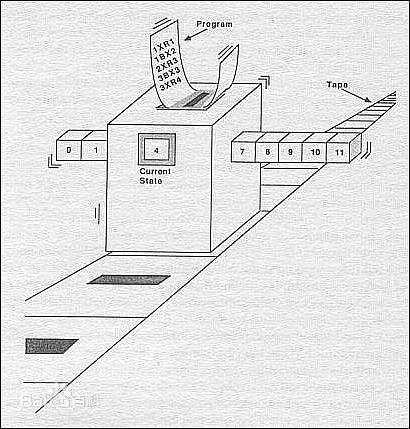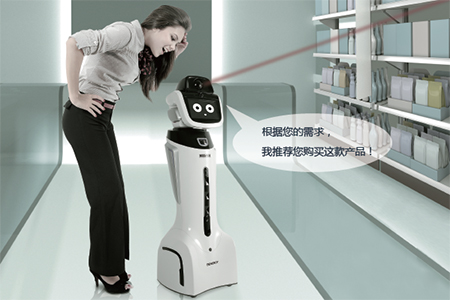Introduction: Perfect artificial intelligence is not yet born. It may even exist in the ideal. Although we are always pursuing intelligence, some things can be found without intellectualization. So, should we calm down? Back to Basics. Many articles on chatbots focus on making them intelligent, and believe that the development of artificial intelligence can make chatbots appear in unprecedented ways. Unfortunately, the idea not only misled many people, but also hurt many people trying to make and sell useful chat bots. Computer scientist Edsger W. Dijkstra said: "The fact that computers can think has become a fact of no dispute." Artificial intelligence has not yet appeared. It is still far away. It may never exist, but practical chat bots do not need AI. Artificial intelligence can literally be understood to make computers as intelligent as humans. The concept is based on Alan Turing's idea. It can be said that Alan Turing made more contributions to the victory of the Second World War than anyone else. Turing is responsible for Hut 8, a part of British intelligence agency located in Bletchley Park, whose mission is to decipher the information of the German Navy. He designed a series of password cracking tools, including a device called Bombe, which successfully refuted the famous crypto machine in Germany. Although it is impossible to quantify the exact influence of Turing's contribution, some historians estimate that without his efforts, the war will last at least two years, which means that 2 million more people will be sacrificed. For most people, developing a device that can speed up the end of the war will be the most outstanding achievement in life. However, Turing is a special case, and deciphering devices is not his greatest achievement. His most famous achievement now is the invention of the Turing machine (Turing machine is an idealized universal computer) and the Turing experiment (the Turing test is the most classic artificial intelligence experiment). The standard set for this experiment is: In the human experiment project, machines and humans can respond as well to the same problem. With this as a standard, we are still far away from realizing true AI. Occasionally, there will be some stories saying: The program you have done has passed Turing. In the 2014 Turing Test at the University of Reading in the United States, a chat robot named Eugene Goostman made 10 of the 30 judges agree that it is no different from humans. Although it apparently did not pass the Turing experiment, some believe that this result is equivalent to passing the Turing test. In addition, it turns out that if Eugene is a person, he is almost equivalent to a brain injury. His programmer defended Eugene's strange response: He is a 13-year-old Ukrainian, English is his second language, and he also made all the mistakes made by chatbots. In other words, he evaded the question and made a turn, giving a vague or evasive answer. However, when we try to develop chat bots, the lack of AI is not a big problem. Even if a good chatbot seems to be smart, this expertise is limited to a limited area. You can imagine the scene when you go to a large clothing store. The salesperson will come forward and provide help. If you want to buy a skirt, she can help you. However, if you are slightly off topic and want to see the shoes, they will give you to other sales staff. If you ask the effect of Brexit on the British economy, they may be powerless. Sales staff can only help you in a very clear area. By the same token, robots in shoe-sales facilities do not need any other ideas. If we limit the areas of knowledge that require sufficient knowledge, we can use brute force algorithms to give robots enough knowledge to become a great help. Moreover, when someone can make some contribution to the computer's knowledge, the effect of storm algorithm will also increase year by year. Dr.Moore first noticed this. Let us look at this idea in another way. In limited circumstances, the autopilot can intelligently pilot the aircraft. But obviously, the autopilot is not smart. The first autopilot had only a gyroscope and an altimeter (produced in 1912, born in the same year as the Turing experiment). However, in a benign situation, this does not limit its ability to fly aircraft. Modern examples are: Auto Cruise Control. This is just a bunch of sensors connected to the throttle and brakes. It has nothing to do with real intelligence, but it is an excellent security system. With cruise control, I can drive a car on the freeway without touching any pedals. When the cruise control system is in operation, it does not basically hit another car. Autopilots are just an upgraded version of this type of system. Again, this driving assistance requires no intelligence. It is just a machine that looks like intelligence because they are as good at humans as they are with clear tasks. Sometimes, technically we ignore the simple idea that utilities do not need intelligence (manual or otherwise). In general this is a fact, especially for chat bots. Perfect artificial intelligence is not yet born, and may even exist forever in the ideal. Although we are always pursuing intelligence, some things can be found without intellectualization. So, should we calm down and return to the truth? Via:VB Recommended reading: note! A big wave of curiosity chat robots are coming Why is the Millennial's "Buster" a chatbot?
Resolver is a kind of commonly used angle detection component, because of its simple structure, reliable operation, and its accuracy can meet the general detection requirements
Resolver,Encoder Troubleshooting Resolver,Custom Resolver,Online Resolver Yuheng Optics Co., Ltd.(Changchun) , https://www.yhencoder.com


